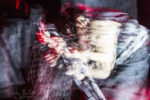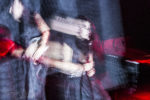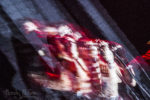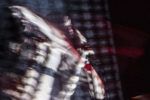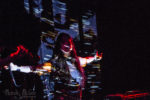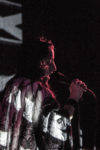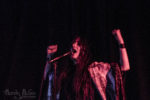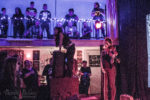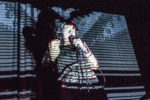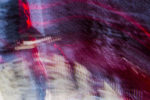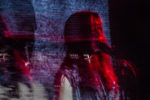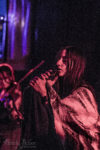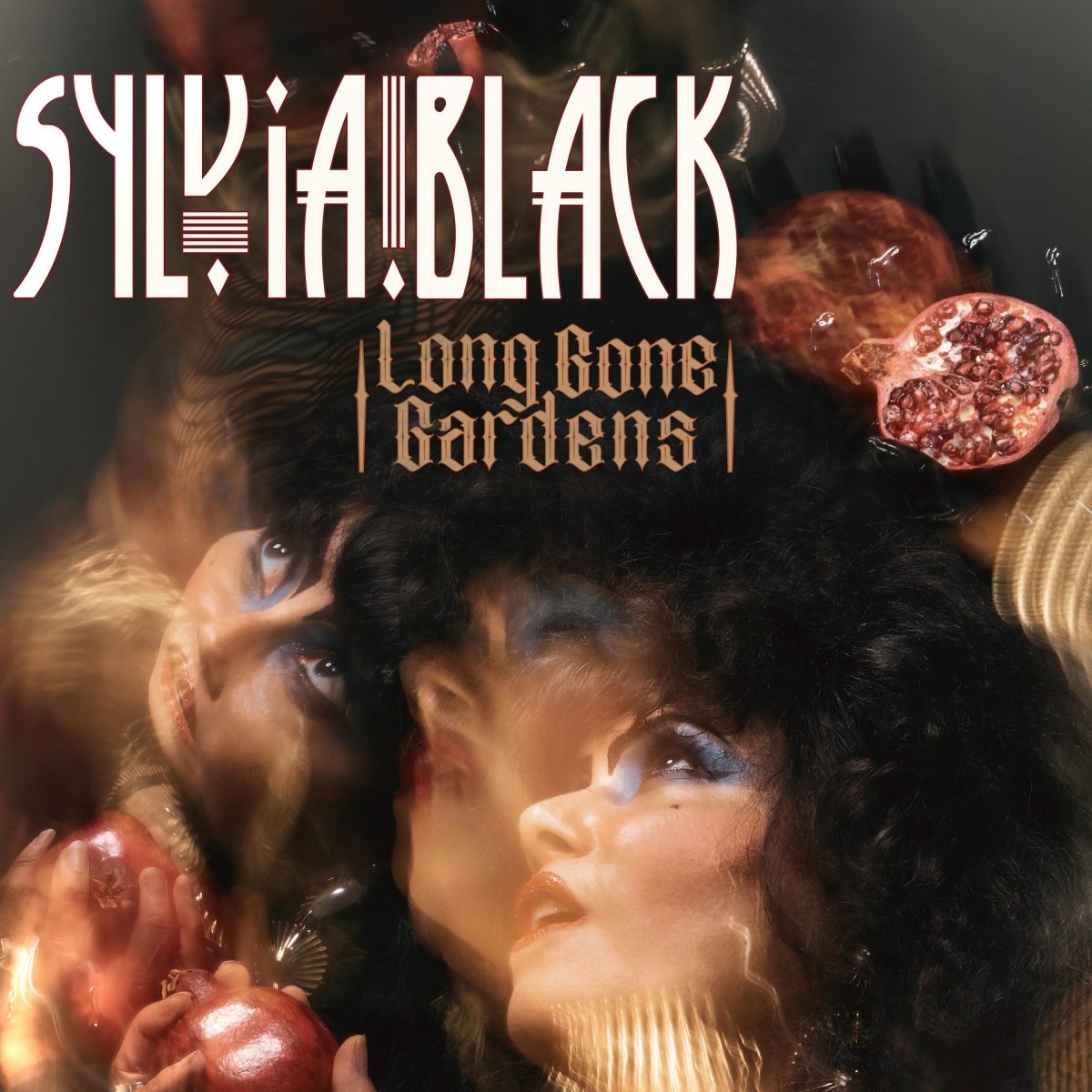By Mandy McGee

I have been in love with Zola Jesus since I first heard the song “Sea Talk” on the 2010 release Stidulum II. Nika Roza Danilova, vocalist, has a very unique haunting and operatic style that is both vulnerable and authoritative. After moving from Seattle back to her hometown in Wisconsin to help close friends dealing with everything from cancer to suicide attempts all the while Danilova battled with her own depression, she is touring again. Her newest release and fifth studio record on Scared Bones, Okovi, was recently released last month. Okovi, which means “shackles” in most Slavic languages, is very appropriate for her return to a darker sound after she dabbled with a more pop sound on her album Taiga and dealing with the grimmer sides of life.

She took the stage at PhilaMOCA on Tuesday night starting with the song “Veka”. The anxiety inducing David Lynch-esque backward speak in the intro incited goosebumps and anticipation for what was to come. She slowly glided on the stage draped in a floor length black dress with a Japanese style yukata covering it and an obi around her waist and her long black hair was covering her face. The goth club beat started pumping like a heartbeat while everyone stood silent and still. The ominous, reverberated notes from the violin and guitar layered beneath Danilvoa’s vocals and washed over the venue. With the jarring and disjointed projection visuals that were reminiscent of bad tracking on a VCR, the stage setup and vibe of the show remained dark and moody.
The 150 capacity venue was sold out and the audience was insanely polite the entire time. Everyone in the place was hypnotized by the performance, clapping affectionately after every song. The whole front row was luckily nice enough to allow space for photographers. Though small, DIY art spaces and venues are awesome in their own right, it didn’t feel like the right space for Zola Jesus’s sound. Sometimes the impact of the performance was lessened by audible boot stomping from the stage, a better sound set up would’ve greatly enhanced the experience.

Amidst sparse, gentle strings, the song “Witness” makes us consider how we’re best able to cope with emotional wounds when we view our circumstances from the outside looking in. “We see your shine/More than the dull you fear/You’re a rare kind/If you could see from the outside”. Watching her sing through her pain makes it not only more sincere, but more relatable.
The night was mostly comprised of songs from Okovi, but they still played several from earlier albums such as “Night” and “Vessel”. Danilova ended the twelve song set with “Exhumed” the single from Okovi, which was a perfect cap to the evening. Every thundering beat from the electronic bass drum, the romantic and bellowing vocals, the deep, violin staccatos and the soaring texture from the guitar were simultaneously energetic and uplifting. There were moments where she came out into the audience to connect with them, she rocked out on songs like “Dangerous Days” and “Exhumed” throwing her hair around, she climbed up on one of the speakers to sing towards the people in the balcony and she also put herself into a ball on the floor and crawled around a little while singing.

The entire show was like watching someone go through life knowing all the hardships, even the moments we like to gloss over because it can be too hard to handle. Danilova has been through some very emotional events and she has come out of her personal darkness to share it with the audience. On “Exhumed” she says “In the static you are reborn”. You can go through all the static of the world and feel you have no way out but you can get through it, you can be given second chances. This message really resonates and it’s easy to connect with her, her music and her style of writing.
There was no encore, and even though I wanted her to just keep singing, that set was perfect the way it was. I stuck around a little bit after the show just so I could tell her how beautiful the show was and how much I admire her for showing us her pain. Music can be a very vulnerable thing.




